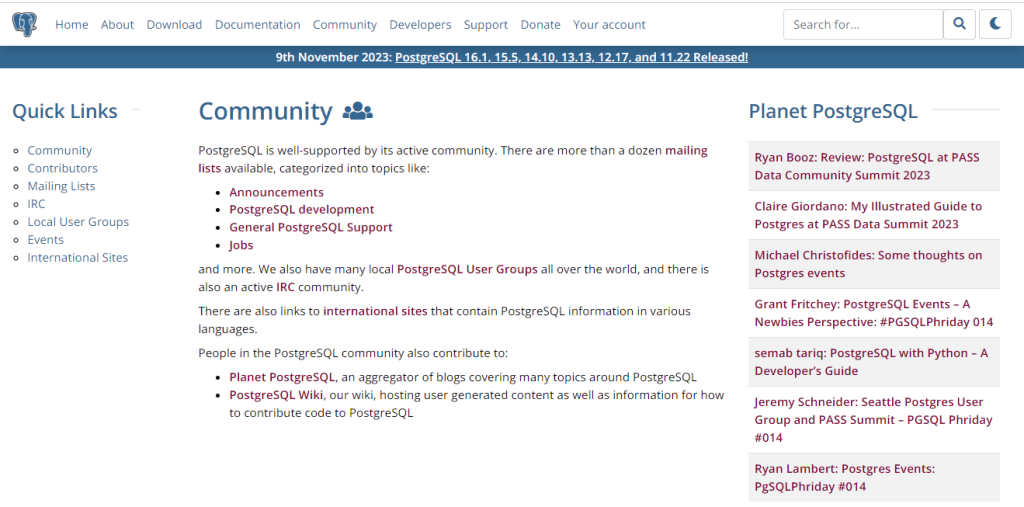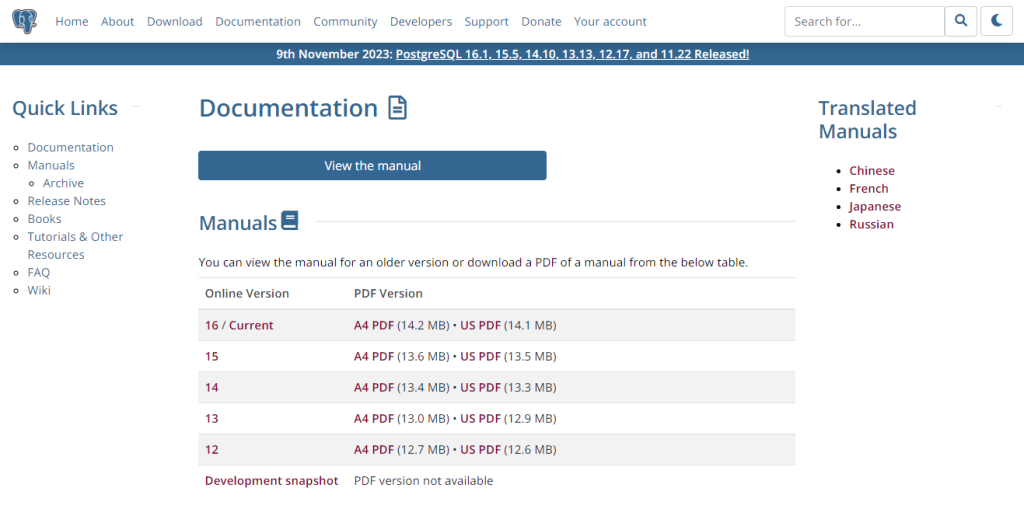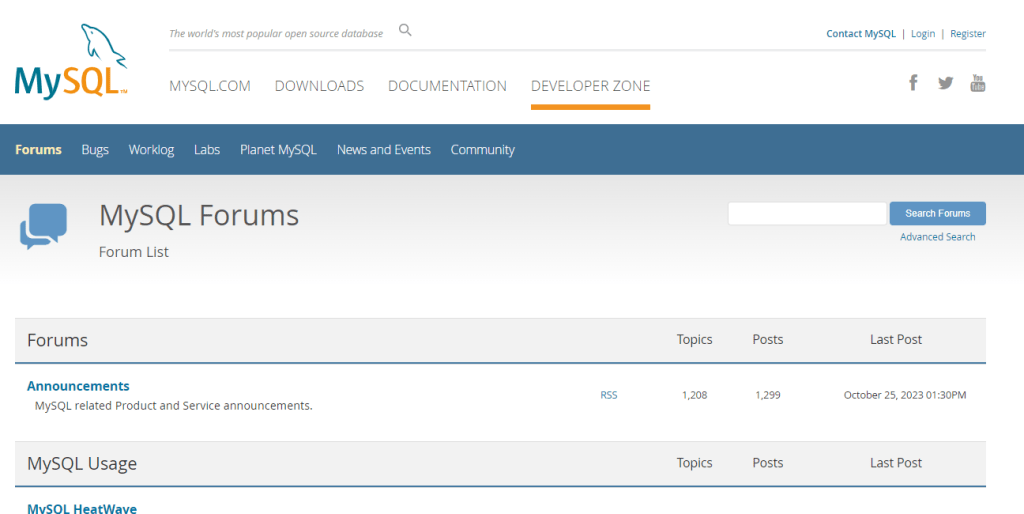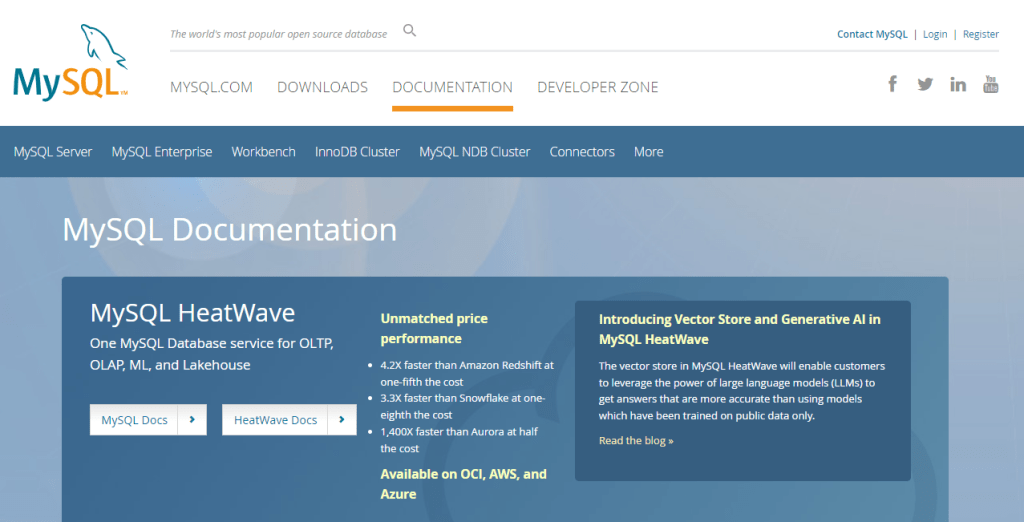PostgreSQL and MySQL are two of the most popular and widely used database management tools on the market. Both systems have advanced features and powerful functionality, but they also have significant differences in their architecture, performance and capabilities.
In this article, we will compare and analyze the differences between PostgreSQL and MySQL. Better understanding the characteristics of each system and choosing the right tool for your data management needs.
Table of Contents
Architecture between PostgreSQL and MySQL
Architecture is one of the main differences between PostgreSQL and MySQL. PostgreSQL is based on a client-server architectural model. Thus, a server manages a set of databases and clients access these databases through connections. In this sense, this allows multiple clients to access the same data set simultaneously, making it more scalable and fault-tolerant.
On the other hand, MySQL is based on a distributed data architecture model, where each database is managed by a separate process. So, this means that each database is managed by a single process, which makes it less scalable than PostgreSQL.
Architecture also affects the performance of each system. PostgreSQL is known for being faster at updates and complex queries, thanks to its parallel processing capabilities and multiple connection support. MySQL is known for being faster in insertion and deletion operations, thanks to its ability to process cached data.
Overall, the architecture and performance of each system is influenced by their differences. PostgreSQL is more scalable and supports parallel processing, while MySQL is faster in specific operations. Choosing the right system depends on the specific needs of your project.
Feature differences between PostgreSQL and MySQL
PostgreSQL and MySQL are two of the most popular and widely used database management tools on the market. Therefore, each offers a series of advanced features for data management, security and integration with other tools.
Advanced data management features
When it comes to advanced data management features, PostgreSQL supports multiple tables, including subquery and advanced data processing functionalities such as aggregation functions and filters. Additionally, it also supports multiple versions of each table, allowing you to keep old versions of your information for backup or historical purposes.
MySQL offers simpler data type management features, such as support for multiple tables and the ability to create indexes to improve the performance of your queries. However, MySQL also offers advanced features such as support for multiple columns with different values and the ability to create tables with foreign keys.
Security
In terms of security, both tools offer authentication and authorization features to control who has access to data.
- PostgreSQL supports several authentication mechanisms, including user and password-based authentication, token authentication, and certificate -based authentication.
- MySQL supports user and password-based authentication and data encryption.
Integration with other Tools
In terms of integration with other tools, both tools offer features to make working with other tools easier.
- PostgreSQL offers connectors for several programming languages, including Python and Java, as well as integration capabilities with other data analysis tools such as Tableau and Power BI. Additionally, PostgreSQL supports several task automation and database management tools, such as pgAdmin.
- MySQL offers connectors for several programming languages, including Python and Java, as well as integration with other data analysis tools such as Tableau and Power BI. Additionally, MySQL supports several task automation and database management tools, such as DBeaver and phpMyAdmin.
In this way, PostgreSQL offers advanced data management features, such as support for multiple versions of each table, while MySQL offers simpler data management features and advanced security features, such as support for multiple columns with different values. Choosing the right system depends on the specific needs of your project.
PostgreSQL and MySQL performance
Both tools have their own advantages and disadvantages, and performance may vary depending on the scenario in which they are used.
- PostgreSQL is known for being faster in complex query scenarios on large volumes of data , this is due to the fact that it has a more complex and scalable architecture, which allows for better use of memory and processing.
- MySQL is faster in simple query scenarios on small or medium data volumes . This way, it is simpler and is designed to be easier to use and configure.
In general, PostgreSQL is known to be faster in complex query scenarios on large volumes of data, while MySQL is faster in simple query scenarios on small or medium volumes of data. This is due to the fact that PostgreSQL has a more complex and scalable architecture, which allows for better memory utilization and processing, while MySQL is simpler and is designed to be easier to use and configure.
However, this is a generalization and actual performance may vary depending on the specific needs of the project. For example, if the project involves complex queries on a small volume of data, MySQL may be the best choice, while if the project involves simple queries on large volumes of data, PostgreSQL may be the best choice.
Furthermore, other characteristics, such as the availability of scalability, security and data integrity features. Can also affect the performance of each tool in different usage scenarios.
In summary, when choosing between PostgreSQL and MySQL. It is important to consider the specific needs of the project and test each tool in similar usage scenarios to determine which is the best option.
Community and support
PostgreSQL and MySQL are two of the most popular database management tools and each has its own community and support.
In terms of support. Both tools have a large community of developers and users who provide support and help through forums, discussion groups, and other online information sources. Additionally, both tools have in-depth documentation resources and code libraries available to help developers work with them. However, the developer community and support available for each tool may vary.
- PostgreSQL is an open source tool, which means it is developed and maintained by a community of volunteer developers. And is known for having a highly active and collaborative user and developer community. Additionally, PostgreSQL has detailed documentation and an open source library available, which allows developers to access and contribute to the source code.


- MySQL, on the other hand, is a proprietary tool. Meaning it is developed and maintained by a company, and its support and developer community are managed by the company. Although the MySQL developer community is large and active, it may not be as collaborative as the PostgreSQL developer community. Furthermore, MySQL’s documentation and code libraries are less accessible and less flexible than those of PostgreSQL.


In summary, both tools have a large developer community and support available. However, the PostgreSQL developer community is generally considered more active and collaborative, while MySQL support is managed by the company.
Conclusion
PostgreSQL and MySQL are two of the most popular database management tools available today. Therefore, each has its own unique characteristics and features that can affect choosing the right tool for each project. PostgreSQL is known for having a more complex and scalable architecture than MySQL, designed to be simpler and easier to use and configure
Additionally, the type of application can also affect choosing the right tool. For example, if the project involves web applications. MySQL may be the best choice, while if the project involves desktop applications, PostgreSQL may be the best choice.
